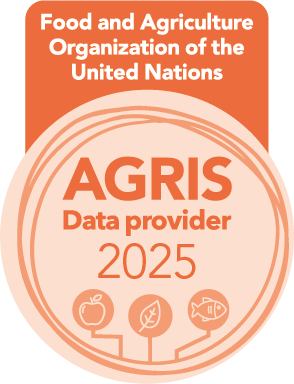Knowledge, Attitude and Practices Regarding Dietary Salt Intake among University Students
Dietary Salt Intake among University Students
DOI:
https://doi.org/10.54393/df.v4i01.67Keywords:
Knowledge, Attitude, Practices, Salt, Dietary Habits, StudentsAbstract
High salt intake is associated with an increased risk of hypertension, which is a major risk factor for cardiovascular diseases. Objective: To investigate the knowledge, attitudes and practices (KAP) for dietary salt intake among university students. Methods: A cross-sectional study was carried out from The University of Lahore. Total 100 students were selected through non-probability convenient sampling technique. SPSS Version 25.0 was used for data analysis. Inclusion Criteria included participants between the ages of 18 to 30 and also healthy individuals. Results: 40 participants were underweighted, 44 normal-weight, and 16 were over-weight of BMI. 80 respondents were under-graduated and 20 respondents were post graduated, 90 unmarried and 10 married respondents, 83 belonged to middle class, 23 participants felt warning signs before the start of blood pressure. 60 was affecting the quality of life, 28 were affecting on daily activities. In knowledge based, 95% agreed high salt cause health problems, 23 consumed high salt. In Attitude based, 50 participants were right amount of salt, 35 participants consumed salty snacks and 32 consumed pickle foods. In practices based, 31 participants rarely tried to reduce spices, 41 participants were trying to buy low salt foods, 23 consumed or added soy sauce to food at the table, and 20 consumed pasta and noodles less than 1-2 times weekly, 59 consumed fast foods. Conclusions: The study showed that all of the participants consume sauces, pickles and salty snacks which are major dietary sources of salt. Public education initiatives should promote less use of “hidden salt”.
High salt intake is associated with an increased risk of hypertension, which is a major risk factor for cardiovascular diseases. Objective: To investigate the knowledge, attitudes and practices (KAP) for dietary salt intake among university students. Methods: A cross-sectional study was carried out from The University of Lahore. Total 100 students were selected through non-probability convenient sampling technique. SPSS Version 25.0 was used for data analysis. Inclusion Criteria included participants between the ages of 18 to 30 and also healthy individuals. Results: 40 participants were underweighted, 44 normal-weight, and 16 were over-weight of BMI. 80 respondents were under-graduated and 20 respondents were post graduated, 90 unmarried and 10 married respondents, 83 belonged to middle class, 23 participants felt warning signs before the start of blood pressure. 60 was affecting the quality of life, 28 were affecting on daily activities. In knowledge based, 95% agreed high salt cause health problems, 23 consumed high salt. In Attitude based, 50 participants were right amount of salt, 35 participants consumed salty snacks and 32 consumed pickle foods. In practices based, 31 participants rarely tried to reduce spices, 41 participants were trying to buy low salt foods, 23 consumed or added soy sauce to food at the table, and 20 consumed pasta and noodles less than 1-2 times weekly, 59 consumed fast foods. Conclusions: The study showed that all of the participants consume sauces, pickles and salty snacks which are major dietary sources of salt. Public education initiatives should promote less use of “hidden salt”.
References
Silva-Santos T, Moreira P, Pinho O, Padrão P, Norton P, Gonçalves C. Salt-Related Knowledge, Attitudes and Behavior in an Intervention to Reduce Added Salt When Cooking in a Sample of Adults in Portugal. Foods. 2022 Mar; 11(7): 981. doi: 10.3390/foods11070981. DOI: https://doi.org/10.3390/foods11070981
Kameník J, Saláková A, Vyskočilová V, Pechová A, Haruštiaková D. Salt, sodium chloride or sodium? Content and relationship with chemical, instrumental and sensory attributes in cooked meat products. Meat Science. 2017 Sep; 131: 196-202. doi: 10.1016/j.meatsci.2017.05.010. DOI: https://doi.org/10.1016/j.meatsci.2017.05.010
Dahalim NH and Jusoh HM. Knowledge, Attitude and Practice Related to Sodium Intake among Health and Non-Health Science Students in Iium Kuantan. International Journal of Allied Health Sciences. 2020 Dec; 4(3): 1581-90.
Al Jawaldeh A, Rafii B, Nasreddine L. Salt intake reduction strategies in the Eastern Mediterranean Region. Eastern Mediterranean Health Journal. 2018 May; 24(12): 1172-80. doi: 10.26719/emhj.18.006. DOI: https://doi.org/10.26719/emhj.18.006
Sun C, Zhou X, Hu Z, Lu W, Zhao Y, Fang Y. Food and salt structure design for salt reducing. Innovative Food Science & Emerging Technologies. 2021 Jan; 67: 102570. doi: 10.1016/j.ifset.2020.102570. DOI: https://doi.org/10.1016/j.ifset.2020.102570
Ahmad NH, Taha CS, Harith S. Sodium intake and its association with knowledge, attitudes and practices among health sciences students in Universiti Sultan Zainal Abidin (Unisza). Asian Journal of Medicine and Biomedicine. 2020 Nov; 4 (SI1): 91-103.
Menyanu E, Russell J, Charlton K. Dietary sources of salt in low-and middle-income countries: a systematic literature review. International Journal of Environmental Research and Public Health. 2019 Jun; 16(12): 2082. doi: 10.3390/ijerph16122082. DOI: https://doi.org/10.3390/ijerph16122082
Nasreddine L, Akl C, Al-Shaar L, Almedawar MM, Isma’eel H. Consumer knowledge, attitudes and salt-related behavior in the Middle-East: the case of Lebanon. Nutrients. 2014 Nov; 6(11): 5079-102. doi: 10.3390/nu6115079. DOI: https://doi.org/10.3390/nu6115079
Magalhães P, Sanhangala EJ, Dombele IM, Ulundo HS, Capingana DP, Silva AB. Knowledge, attitude and behaviour regarding dietary salt intake among medical students in Angola. Cardiovascular Journal of Africa. 2015 Mar; 26(2): 57. doi: 10.5830/CVJA-2015-018. DOI: https://doi.org/10.5830/CVJA-2015-018
Webster A, Banna J, Lim E, Gibby CL, Rose AM, Hopkins LC, Kennel JA, Orchard TS, Bomser JA, Gunther C. Knowledge, attitudes, and practices regarding dietary sodium in college students. Journal of Nutrition Education and Behavior. 2020 Dec; 52(12): 1139-47. doi: 10.1016/j.jneb.2020.09.005. DOI: https://doi.org/10.1016/j.jneb.2020.09.005
Menyanu E, Charlton KE, Ware LJ, Russell J, Biritwum R, Kowal P. Salt use behaviours of Ghanaians and South Africans: a comparative study of knowledge, attitudes and practices. Nutrients. 2017 Aug; 9(9): 939. doi: 10.3390/nu9090939. DOI: https://doi.org/10.3390/nu9090939
Haron H. Knowledge, Attitude and Practice (KAP) on Salt Intake and its Relationship with Blood Pressure among Chinese Adults in Johor. Asian Journal of Medicine and Biomedicine. 2022 Nov; 6(2): 121-31. doi: 10.37231/ajmb.2022.6.2.483. DOI: https://doi.org/10.37231/ajmb.2022.6.2.483
Cheikh Ismail L, Hashim M, Jarrar HA, Mohamad NM, Saleh TS, Jawish N, et al. Knowledge, attitude, and practice on salt and assessment of dietary salt and fat intake among University of Sharjah students. Nutrients. 2019 Apr; 11(5): 941. doi: 10.3390/nu11050941. DOI: https://doi.org/10.3390/nu11050941
Alkazemi D. Gender differences in weight status, dietary habits, and health attitudes among college students in Kuwait: A cross-sectional study. Nutrition and Health. 2019 Jun; 25(2): 75-84. doi: 10.1177/0260106018817410. DOI: https://doi.org/10.1177/0260106018817410
Mansor WA, Harith S, Taha CS, Ong YQ. Knowledge, Attitude and Practice Towards Salt Intake of Its Associated Factors Among Hypertensive Felda Residence in Terengganu. Malaysian Applied Biology. 2021 Nov; 50(2): 125-33. doi: 10.55230/mabjournal.v50i2.1957. DOI: https://doi.org/10.55230/mabjournal.v50i2.1957
Bhattacharya S, Thakur JS, Singh A. Knowledge attitude, and practice regarding dietary salt intake among urban slum population of North India. Journal of Family Medicine and Primary Care. 2018 May; 7 (3): 526. doi: 10.4103/jfmpc.jfmpc_60_17. DOI: https://doi.org/10.4103/jfmpc.jfmpc_60_17
Kenao TS, Sossa JC, Paraiso MN, Belo M, Bouraima M, Sopoh G, et al. Knowledge, Attitudes and Practices of the Populations of Dapaong and Its Surroundings in Togo on Sodium/Salt and Potassium Intakes. Open Journal of Epidemiology. 2023 Mar; 13(2): 113-27. doi: 10.4236/ojepi.2023.132009. DOI: https://doi.org/10.4236/ojepi.2023.132009
Herrera-Fontana ME, Sisa I, Mosquera K, Celi ME, Terán E. Knowledge, attitudes and practices surrounding sodium intake in Ecuador: a pilot study. Revista de Salud Pública. 2021 Feb; 23(1): 1. doi: 10.15446/rsap.v23n1.88379. DOI: https://doi.org/10.15446/rsap.v23n1.88379
Haj N and Mh R. Assessment of The Perception Of Harmful Health Effects Of Monosodium Glutamate As Food Additive Among Medical And Dental Students Of An Institution In Lahore–Pakistan. Biomedica. 2016 Oct; 32(4): 239-45. doi: 10.22038/IJBMS.2020.43060.10123.
Hu Y, Wang Z, Wang Y, Wang L, Han W, Tang Y, et al. Prevalence, awareness, treatment, and control of hypertension among Kazakhs with high salt intake in Xinjiang, China: a community-based cross-sectional study. Scientific Reports. 2017 Mar; 7(1): 45547. doi: 10.1038/srep45547. DOI: https://doi.org/10.1038/srep45547
Sarker R, Mondal R, Roy D, Acharya N, Afrin R, Mandal S, et al. Knowledge attitude and behaviours towards dietary salt in a selected slum population in Bangladesh. International Journal of Perceptions in Public Health. 2018 Sep; 2(4): 178-83. doi: 10.29251/ijpph.2018.0204. DOI: https://doi.org/10.29251/ijpph.2018.0204
Zhang J, Xu AQ, Ma JX, Shi XM, Guo XL, Engelgau M, et al. Dietary sodium intake: knowledge, attitudes and practices in Shandong Province, China, 2011. PloS One. 2013 Mar; 8(3): e58973. doi: 10.1371/journal.pone.0058973. DOI: https://doi.org/10.1371/journal.pone.0058973
Grimes CA, Khokhar D, Bolton KA, Trieu K, Potter J, Davidson C, et al. Salt-related knowledge, attitudes and behaviors (KABs) among Victorian adults following 22-months of a consumer awareness campaign. Nutrients. 2020 Apr; 12(5): 1216. doi: 10.3390/nu12051216. DOI: https://doi.org/10.3390/nu12051216
Wicaksana AL. Knowledge, attitude and behavior toward dietary salt: The nescience among hypertensive patients in Indonesia. International Journal Residence Medicine Science. 2017 Aug; 5(8): 3413-9. doi: 10.18203/2320-6012.ijrms20173532. DOI: https://doi.org/10.18203/2320-6012.ijrms20173532
Gerensea H, Yohannse A, Baymot B, Atsbha H. Knowledge, attitude and practice (KAP) towards iodized salt utilization in HaweltiKebelle, Axum, Tigray, Ethiopia, 2015. Edorium Journal Nutrition Diet. 2016 Jan; 2: 1-8. doi: 10.5348/N09-2016-3-OA-1. DOI: https://doi.org/10.5348/N09-2016-3-OA-1
Leyvraz M, Mizéhoun-Adissoda C, Houinato D, Moussa Baldé N, Damasceno A, Viswanathan B, et al. Food consumption, knowledge, attitudes, and practices related to salt in urban areas in five sub-saharan African countries. Nutrients. 2018 Aug; 10(8): 1028. doi: 10.3390/nu1008102. DOI: https://doi.org/10.3390/nu10081028
Downloads
Published
How to Cite
Issue
Section
License
Copyright (c) 2023 DIET FACTOR (Journal of Nutritional & Food Sciences)

This work is licensed under a Creative Commons Attribution 4.0 International License.
This is an open-access journal and all the published articles / items are distributed under the terms of the Creative Commons Attribution License, which permits unrestricted use, distribution, and reproduction in any medium, provided the original author and source are credited. For comments












